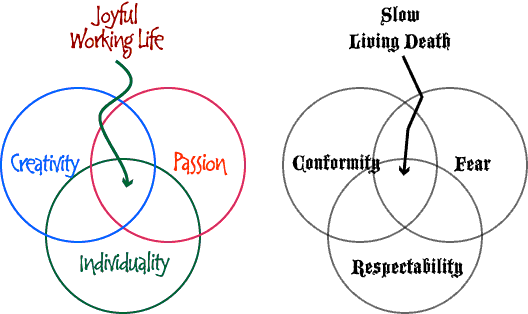To get the best from your next vacation, put yourself into “rehab” with these simple steps
Vacation time is ideal for breaking out of that addiction to work—before it gets to ruin your life and relationships
Do you tend to take less vacation that you’re entitled to, because you “can’t get away?” Do you cancel vacation plans at the last minute? Do you have trouble “switching off” when you are away, so you spend time worrying about what you’re missing, and constantly checking-in? The path that descends into serious workaholic behavior has deceptively gentle slope. Before you realize it, your life can be in a mess. So why not use this coming vacation season for some “do-it-yourself detox?”It isn’t only media stars who may need to check into rehab from time to time. Workaholism is just as much of an addiction as being dependent on alcohol or drugs. Those who suffer from work addiction like the “high” it gives them; the dopamine-assisted lift that they get from completing yet another of the hundreds of items on their to-do list, or rushing to another meeting, or overcoming yet another impossible deadline. Like all addicts, they suffer withdrawal symptoms if they’re deprived of their “fix” for more than few hours. And they can be extremely devious and ruthless in ensuring that they have a way to continue to feed their addiction.
What’s the link to vacations? A recent survey, reported in BusinessWeek, found that more than half of American workers don’t take all the vacation time they are entitled to. Thirty percent take less than half their allotment, and 20% take just a few days, at most. Amongst professionals, 42% report having to cancel vacations “regularly.” And even when they do take time away, a large proportion constantly check e-mails, phone the office, or stay in touch via BlackBerrys or PDAs.
That’s addiction, pure and simple. Forget arguing that it’s what the organization expects. Organizations can’t expect anything, since they’re inanimate. That expectation itself comes from people. It’s work-addicted people who expect others to share their addiction, just as drunks try to get others to drink with them. If you want confirmation that it’s a widespread and serious problem, the same BusinessWeek article says that several high-end resorts are offering “detox programs” for those obsessed with work, confiscating their communication devices and keeping them away from telephones. Some employers are even monitoring how much vacation time people take and ordering those who don’t take enough to leave the office behind them for a time.
So, since we’re now at the start of the vacation season, here’s a simple, gentle “detox’ program you can follow on your own to break up any burgeoning tendency to spend too much time focused on work and its demands:
- “Contract” with someone to keep hold of your cellphone, BlackBerry, or PDA and refuse you access, save in the very greatest emergency.
- Do the same with telephone calls. Don’t answer any yourself. Have each one screened to keep distractions away.
- Leave your laptop at home. No excuses.
- Tell everyone that you will not be contactable—and don’t contact them either.
- Give yourself a complete break from the media. No news, no shows, nothing. You can read (nothing work-oriented), think, exercise, and spend time with friends and family. Nothing else.
- Fill your vacation time with definite—preferably highly interesting or demanding—activities. Don’t just lie on a beach or have whole days with nothing specific to do. The temptation to fill the time with work-related activities will be too much.
- Have someone monitoring you all the time, with permission to call you to order sharply. All addicts are devious and very ready to find ways to feed their addictions in secret. If you find yourself hiding some work-based activity—or, much worse, lying to conceal it—be very afraid. Your addiction is serious.
Workaholism—even the milder kinds—gradually destroys major parts of your life, especially your relationships. It also puts you on the path to burnout, which will destroy your career in time. Don’t you owe it to yourself and your family and friends to use your proper vacation time to make yourself a better person to be around, a better employee, and a better family member?
So, if you tend not to take all your vacation, repeatedly cancel vacation plans, or even just have trouble “switching off” when you are away, heed the warnings before it’s too late. Act now, when all it may take to put yourself right is a little discipline and a sensible detox program of the kind I’ve detailed above. Don’t wait until you’re in real trouble and most of your options have already gone.
Labels: burnout, lifestyle, stress, work/life balance










